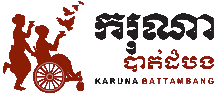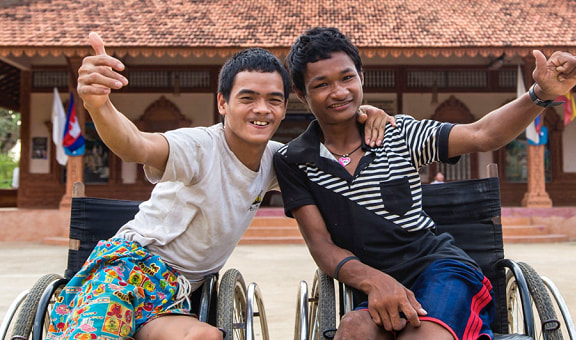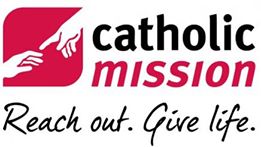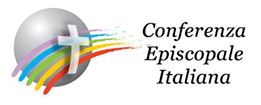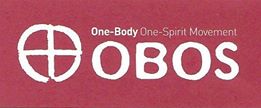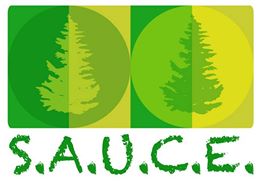SAMATHAPHEAP JHUNPIKAR - Disabilities Project
Enhancing the Quality of Life of People with Intellectual and Physical Disabilities
Disability in Cambodia
People with disabilities have been a hidden, misunderstood minority, often routinely deprived of the basic life choices that even the most disadvantaged among us take for granted.
In Cambodia, about 5,6% of the population has some disability, -according to Cambodian Socioeconomic Survey (2014). Cambodia is one of the countries most affected by mines and explosive remnants of war, due to three decades of armed conflict that left more than 10 million landmines. Besides physical and psychological damage, accidents lead to an obvious instability in the family ́s economy, as most of their income or properties will be used for the survivor ́s treatment. Moreover, the lack of vaccinations during a long period of time has caused many children to suffer from poliomyelitis and poor Health care during pregnancy cerebral palsy, different síndromes, or other kinds of disabilities. For many families, this means entering a cycle of chronic poverty. The constant supervision that some people need, places enormous limitations on the parents, particularly the primary care-givers, severely reducing opportunities for employment because they have to stay at home or have someone stay at home all the time to take care of their child.
Another challenge identified by most parents is the need for assistance, in terms of specialized help provided by people trained to work with a disability, and on financial issues due to high health care costs. We found that many parents experienced difficulties in finding the funds needed to cover health care expenses, especially if the child had a chronic condition.
We also found that families considered that their child with disabilities has less value in society, hiding a child away to prevent them from interacting with the visitors is as much from shame and waiting to protect the child, as from a sense of courtesy and respect, especially extended to high-status visitors. Consequently, not only children with intellectual disabilities are subject to discrimination, but also their families, especially mothers who are seen as directly responsible for, even the cause of, their children´s situation.
Parents also express their concerns and expectations about their child´s future. Some children are not allowed to join school just for the fact that they “look different”. Families are also clearly worried about the event that they pass away, who would look after their children and be available at all times to answer their needs. This concern is especially acute among families whose child´s disability is particularly severe, as parents worried about the reduced capacity of their children to support themselves in the future.
People with disabilities have been a hidden, misunderstood minority, often routinely deprived of the basic life choices that even the most disadvantaged among us take for granted.
In Cambodia, about 5,6% of the population has some disability, -according to Cambodian Socioeconomic Survey (2014). Cambodia is one of the countries most affected by mines and explosive remnants of war, due to three decades of armed conflict that left more than 10 million landmines. Besides physical and psychological damage, accidents lead to an obvious instability in the family ́s economy, as most of their income or properties will be used for the survivor ́s treatment. Moreover, the lack of vaccinations during a long period of time has caused many children to suffer from poliomyelitis and poor Health care during pregnancy cerebral palsy, different síndromes, or other kinds of disabilities. For many families, this means entering a cycle of chronic poverty. The constant supervision that some people need, places enormous limitations on the parents, particularly the primary care-givers, severely reducing opportunities for employment because they have to stay at home or have someone stay at home all the time to take care of their child.
Another challenge identified by most parents is the need for assistance, in terms of specialized help provided by people trained to work with a disability, and on financial issues due to high health care costs. We found that many parents experienced difficulties in finding the funds needed to cover health care expenses, especially if the child had a chronic condition.
We also found that families considered that their child with disabilities has less value in society, hiding a child away to prevent them from interacting with the visitors is as much from shame and waiting to protect the child, as from a sense of courtesy and respect, especially extended to high-status visitors. Consequently, not only children with intellectual disabilities are subject to discrimination, but also their families, especially mothers who are seen as directly responsible for, even the cause of, their children´s situation.
Parents also express their concerns and expectations about their child´s future. Some children are not allowed to join school just for the fact that they “look different”. Families are also clearly worried about the event that they pass away, who would look after their children and be available at all times to answer their needs. This concern is especially acute among families whose child´s disability is particularly severe, as parents worried about the reduced capacity of their children to support themselves in the future.
+Intellectual Disability Program: Samathpheap Chun Pikar Program -Enhancing the Quality of Life of People with Intellectual Disabilities and Their families+
+Goal of the project:
We aim to achieve the full integration of people with disabilities (PwD) into society.
+Objective of the project:
All the activities of the project contribute to the creation of appropriate conditions for greater involvement of people with disabilities, into social and economic activities of their families and communities in ways that accrue their self-esteem, their dignity, and the respect they deserve. As people with disabilities want neither pity-Rudden paternalism not overblown admiration. The insist simply on common respect and the opportunity to build bonds to their communities as fully accepted participants in everyday life.
+Methodology:
The project is based on the principles of Community Based Rehabilitation where the families and the whole community become active participants in the improvement of the life of people with disabilities. With the project, we provide rehabilitation services to people with disabilities in five Community Based Rehabilitation (CBR) centers; and at their homes in the selected areas of Battambang, Kampong Chhnang, and Kandal provinces.
This project focus on education opportunities, physiotherapy, medical follow up, infrastructure facilities, or emergency help. However, following new tendencies, the change has meant moving from a direct interventional approach to the child (disability, pathology, limitation, ...) in which therapists focus on "correcting the problem" to an approach that includes the child, activity, environment, family, and follows the contemporary model of the CIFD. A current vision that emphasizes the role, empowers the child for their specific tasks and highlights participation in life situations such as play, leisure, etc. trying to empower and empower parents.
Moreover, we develop several campaigns, radio spots, and events to approach disability to everybody else. Everything that can approach to complete integration into the community, the central tenet of the disability rights movement. At the end of the rainbow is a day when a person’s disability will no longer matter.
+Beneficiaries:
The beneficiaries of our project are:
+Goal of the project:
We aim to achieve the full integration of people with disabilities (PwD) into society.
+Objective of the project:
All the activities of the project contribute to the creation of appropriate conditions for greater involvement of people with disabilities, into social and economic activities of their families and communities in ways that accrue their self-esteem, their dignity, and the respect they deserve. As people with disabilities want neither pity-Rudden paternalism not overblown admiration. The insist simply on common respect and the opportunity to build bonds to their communities as fully accepted participants in everyday life.
+Methodology:
The project is based on the principles of Community Based Rehabilitation where the families and the whole community become active participants in the improvement of the life of people with disabilities. With the project, we provide rehabilitation services to people with disabilities in five Community Based Rehabilitation (CBR) centers; and at their homes in the selected areas of Battambang, Kampong Chhnang, and Kandal provinces.
This project focus on education opportunities, physiotherapy, medical follow up, infrastructure facilities, or emergency help. However, following new tendencies, the change has meant moving from a direct interventional approach to the child (disability, pathology, limitation, ...) in which therapists focus on "correcting the problem" to an approach that includes the child, activity, environment, family, and follows the contemporary model of the CIFD. A current vision that emphasizes the role, empowers the child for their specific tasks and highlights participation in life situations such as play, leisure, etc. trying to empower and empower parents.
Moreover, we develop several campaigns, radio spots, and events to approach disability to everybody else. Everything that can approach to complete integration into the community, the central tenet of the disability rights movement. At the end of the rainbow is a day when a person’s disability will no longer matter.
+Beneficiaries:
The beneficiaries of our project are:
- 260 Persons with Intellectual Disabilities and their families (around 1,200 people)
- 3 staff from Provincial Department of Social Affairs Veteran and Youth (DoSVY)
- 2 Disable Action Council Members
- 3 staff from Provincial Health Department (PHD)
- 56 Health Center staff (from 28 HC)
- 3 District council members
- 22 commune leaders/commune council members
- 104 village leaders/village development committee members
- 50 teachers in 16 public schools
The Rights of persons with Disabilities in getting effective Care/Society - Event to raise the awareness on the Rights of People with Disabilities in the Community Topic: The Rights of persons with Disabilities in getting effective Care/Society KompongChhang, September, 13th, 2017.
|
|
|
+Physical Disability Program: Samathpheap Chun Pikar Program -Enhancing the Quality of Life of People with Physical Disabilities and Their families +
This project aims to improve the well-being of people with disabilities that are among the most marginalized and segregated groups in Cambodian society in order to help them be recognized and treated as full members of their communities and the society in general.
The General Objective of the project is to facilitate the integration of people with disabilities into the society.
The Specific Objective is to create the conditions where people with disabilities can become active participants in the social and economic development of their families and communities.
Outreach project focuses on reaching out to the most vulnerable and poorest in Cambodia: the people with disabilities.
The intervention follows two distinctive strategies:
+The main activities of the project are:
R1: Organized communities for people with disabilities have been developed:
1.1 Support to Prey Thom Community
The community of Prey Thom was created in 2006 by inviting 20 families of people with disabilities. Each family was provided with a small lot for building a house and one hectare of land and the whole community was given additional land for cultivation. In this community there is also a workshop where women belonging to these 20 families produce kromas, a typical scarf from Cambodia, and a school supported by the Apostolic Prefecture of Battambang Obrum project. The project will support these 20 families in the planting of rice, the weaving of kromas, the planting of trees for wood selling, the planting of vegetable gardens and with the improvement of the houses and sanitation facilities. The strategy is that in time, the community will be able to produce enough income to sustain itself and all their activities so the staff of the project will continuously provide technical support to improve the production of the rice and the kromas. For 2016, a sewing training center will be established in order to provide skills training to the members of the community on the production of different kinds of clothes.
1.2 Support to Rattanak Mondol Community
The community of Rattanak Mondol was created in 2008 by inviting 6 families of people with disabilities. Each family was provided with a small lot for building a house and one hectare of land and the whole community was given additional land for cultivation. In this community there is also a school supported by the Apostolic Prefecture of Battambang Obrum project. The project will support these 6 families in the planting of potato, rice or corn by providing them with microloans, the planting of trees for wood selling, the planting of vegetable gardens and with the improvement of the houses and sanitation facilities. The strategy is that in time, the community will be able to produce enough income to sustain itself and all their activities so the staff of the project will continuously provide technical support to improve the production of the rice.
1.3 Support the Outgania Community
The community of Outgania started to be supported by the Outreach team in 2008, as it was previously managed by Caritas Cambodia. The Outagnia community works as a community center where ten families cultivate the community land and the community manager cultivates a 4 Hectares of rice. In Outagnia no individual houses or land lots where provided. The project will support the community manager and its family in the planting of rice, the planting of fruit trees and with the improvement of the houses and sanitation facilities. The strategy is that in time, the community will be able to produce enough income to sustain itself and all their activities so the staff of the project will continuously provide technical support to improve the production of the rice.
R2: People with disabilities have improved their living conditions:
1.4 Support for housing and WASH
Selected families of people with disabilities will receive the support to build a house, improve their already existing house, build a latrine or dig a well. All these activities will be followed closely by our staff in order to achieve the results expected.
1.5 Support for assistive devices
Selected people with disabilities will receive a wheelchair or a tricycle in order to improve their mobility.
1.6 Emergency support
Selected families of people with disabilities will receive support (food, blankets, money, mosquito nets, pots, etc.) in cases when they are facing emergency situations like death in the immediate family or families that are in critical condition. For the particular case of families that are in critical condition, they will receive constant food support to help them with their subsistence. Our staff will continue to monitor these families in order to ascertain the improvement of their condition as time progresses.
1.7 Food support
Selected poor families of people with disabilities will receive food support to help them on a particular time. Our staff will follow these families in order to make sure that our support helps the family in this time of need.
R3: People with disabilities have improved their education and skills in order to become more independent and be active members in the society:
1.8 Financial Support with Zero return interest
Selected families will receive microloans in order to help them improve their income generation activities. The loans will be provided for fixed terms and a small interest, much lower than the market level, will be charged. Our staff will continue follow these families in order to ascertain that the loans are used properly and that the income generation activities are improving. Technical assistance will be provided if needed.
Additionally, in the area of Kum Rieng, a group microloan will be provided to more than 150 families in order for them to improve their potato and corn cultivation. This area is particularly deprived given the fact that most inhabitants have been mutilated by land mines and require extensive assistance to become economically independent. The interest charged will be also much lower than market level, so that the families get the most benefit from the activity. Every year the interest collected will be reinvested in new loans and more families will be included in the activity.
1.9 Education, skills and vocational training
Selected people with disabilities will receive education, skills and vocational training according to their capacities in the following institutions:
The General Objective of the project is to facilitate the integration of people with disabilities into the society.
The Specific Objective is to create the conditions where people with disabilities can become active participants in the social and economic development of their families and communities.
Outreach project focuses on reaching out to the most vulnerable and poorest in Cambodia: the people with disabilities.
The intervention follows two distinctive strategies:
- People with disabilities are given the opportunity to become a part of new communities where basics services and education are provided and where actions are taken in order to make them capable of generating sustainable income for themselves and their families.
- People with disabilities are supported and accompanied individually in order to integrate them and empower them by providing them access to suitable housing, clean water, education and other productive resources.
+The main activities of the project are:
R1: Organized communities for people with disabilities have been developed:
1.1 Support to Prey Thom Community
The community of Prey Thom was created in 2006 by inviting 20 families of people with disabilities. Each family was provided with a small lot for building a house and one hectare of land and the whole community was given additional land for cultivation. In this community there is also a workshop where women belonging to these 20 families produce kromas, a typical scarf from Cambodia, and a school supported by the Apostolic Prefecture of Battambang Obrum project. The project will support these 20 families in the planting of rice, the weaving of kromas, the planting of trees for wood selling, the planting of vegetable gardens and with the improvement of the houses and sanitation facilities. The strategy is that in time, the community will be able to produce enough income to sustain itself and all their activities so the staff of the project will continuously provide technical support to improve the production of the rice and the kromas. For 2016, a sewing training center will be established in order to provide skills training to the members of the community on the production of different kinds of clothes.
1.2 Support to Rattanak Mondol Community
The community of Rattanak Mondol was created in 2008 by inviting 6 families of people with disabilities. Each family was provided with a small lot for building a house and one hectare of land and the whole community was given additional land for cultivation. In this community there is also a school supported by the Apostolic Prefecture of Battambang Obrum project. The project will support these 6 families in the planting of potato, rice or corn by providing them with microloans, the planting of trees for wood selling, the planting of vegetable gardens and with the improvement of the houses and sanitation facilities. The strategy is that in time, the community will be able to produce enough income to sustain itself and all their activities so the staff of the project will continuously provide technical support to improve the production of the rice.
1.3 Support the Outgania Community
The community of Outgania started to be supported by the Outreach team in 2008, as it was previously managed by Caritas Cambodia. The Outagnia community works as a community center where ten families cultivate the community land and the community manager cultivates a 4 Hectares of rice. In Outagnia no individual houses or land lots where provided. The project will support the community manager and its family in the planting of rice, the planting of fruit trees and with the improvement of the houses and sanitation facilities. The strategy is that in time, the community will be able to produce enough income to sustain itself and all their activities so the staff of the project will continuously provide technical support to improve the production of the rice.
R2: People with disabilities have improved their living conditions:
1.4 Support for housing and WASH
Selected families of people with disabilities will receive the support to build a house, improve their already existing house, build a latrine or dig a well. All these activities will be followed closely by our staff in order to achieve the results expected.
1.5 Support for assistive devices
Selected people with disabilities will receive a wheelchair or a tricycle in order to improve their mobility.
1.6 Emergency support
Selected families of people with disabilities will receive support (food, blankets, money, mosquito nets, pots, etc.) in cases when they are facing emergency situations like death in the immediate family or families that are in critical condition. For the particular case of families that are in critical condition, they will receive constant food support to help them with their subsistence. Our staff will continue to monitor these families in order to ascertain the improvement of their condition as time progresses.
1.7 Food support
Selected poor families of people with disabilities will receive food support to help them on a particular time. Our staff will follow these families in order to make sure that our support helps the family in this time of need.
R3: People with disabilities have improved their education and skills in order to become more independent and be active members in the society:
1.8 Financial Support with Zero return interest
Selected families will receive microloans in order to help them improve their income generation activities. The loans will be provided for fixed terms and a small interest, much lower than the market level, will be charged. Our staff will continue follow these families in order to ascertain that the loans are used properly and that the income generation activities are improving. Technical assistance will be provided if needed.
Additionally, in the area of Kum Rieng, a group microloan will be provided to more than 150 families in order for them to improve their potato and corn cultivation. This area is particularly deprived given the fact that most inhabitants have been mutilated by land mines and require extensive assistance to become economically independent. The interest charged will be also much lower than market level, so that the families get the most benefit from the activity. Every year the interest collected will be reinvested in new loans and more families will be included in the activity.
1.9 Education, skills and vocational training
Selected people with disabilities will receive education, skills and vocational training according to their capacities in the following institutions:
- - Arrupe Karuna Welcome Center where they will enjoy a loving and caring home environment and will have the opportunity to go to school.
- - Don Bosco vocational training center where they will have the opportunity to study Home and Food Management, Mechanics, Computer, Accounting, General Office Procedures, or English, among other professions.
- - Banteay Prieb, Jesuit Service vocational training center, where they will learn Agriculture, Sewing, Electronics, Mechanics, and other professions.
- - Other vocational training centers
KARUNA BATTAMBANG
AN AID ORGANIZATION OF THE CATHOLIC CHURCH REGISTERED IN CAMBODIA
|
Registered in the Nongovernmental Organization at the Ministry of Interior, Cambodia with the License Number 4659 P , Signed by Secretary of State H.E. POL LIM
Phnom Penh Capital, June 08th, 2016 |
In Cooperation with
